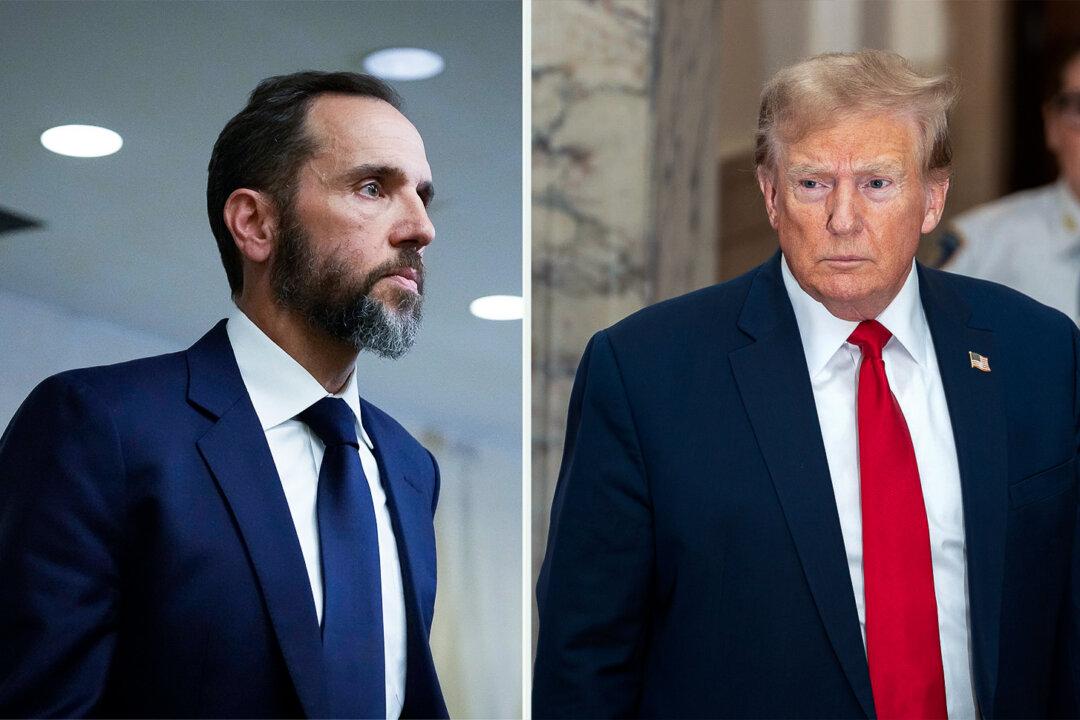A handful of legal experts, including two former attorneys general, have filed a request to participate in an upcoming court hearing in support of former President Donald Trump’s motion to dismiss his classified documents case in Florida based on the alleged unlawful appointment of special counsel Jack Smith.
U.S. District Court Judge Aileen Cannon has set a June 21 date to hear arguments on President Trump’s Feb. 22 motion to dismiss the case based on the unlawful appointment argument, which is based on the idea that Attorney General Merrick Garland lacked authority to appoint Mr. Smith as special counsel overseeing the Trump prosecution.





